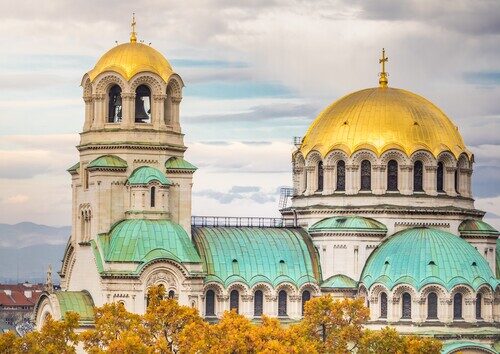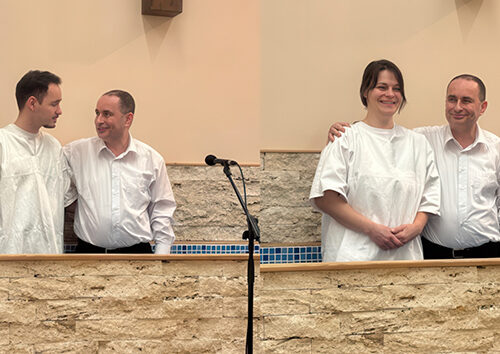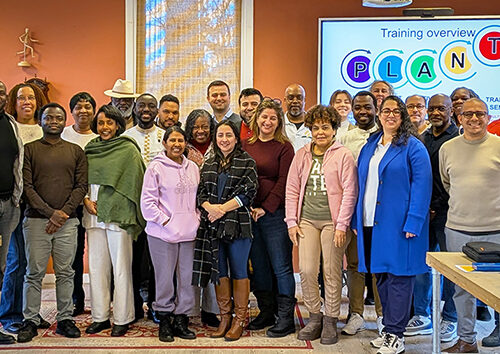27 November 2024|Plovdiv, Bulgaria [David Neal]
The Trans-European Division (TED) encompasses a diverse religious landscape in which Secular Post-Christian, Islam, and Eastern Orthodoxy are the dominant worldviews. Eastern Orthodoxy holds a particularly significant cultural and spiritual presence in several countries. Orthodox identity is closely aligned with national identity in nations where most of the population are adherents.
Adventist Mission in Orthodox Cultures Conference
With this dynamic backdrop and an historic first for Adventism – a collaborative initiative between the Trans-European Division (TED), Inter-European Division (EUD), Ukraine Mission, Euro-Asia Division (ESD), and General Conference Conference Office of Adventist Mission, over 100 representatives from 23 countries met in Plovdiv, Bulgaria, from 26 to 28 November. Their purpose was to examine the role and effectiveness of the Adventist mission in the context of Orthodox cultures. While the conference included academic papers, the ‘Being an Adventist in My Country’ presentations were as significant in providing the basis for strategic recommendations moving forward.
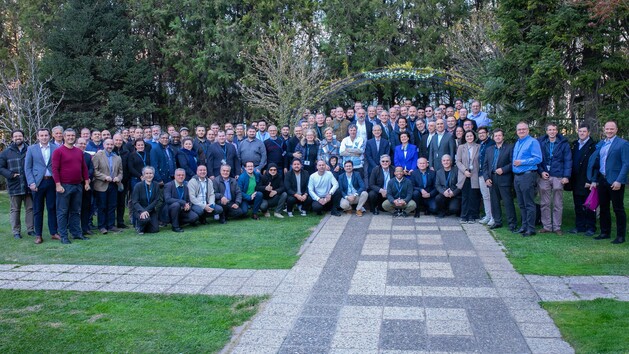
Five nations within the TED territory have a majority of the population adhering to Orthodoxy: Greece (90%), Serbia (84%), Cyprus (89%), Montenegro (72%), and North Macedonia (65%). (1) In other nations, such as Bosnia & Herzegovina (31%), Albania (20%), Latvia (13%), Estonia (16%), Lithuania (4%), and Croatia (3.2%), Orthodox communities form smaller yet still influential segments of society. All the latest 2023 figures in all countries show an across-the-board 4-10% decrease in adherents since the 2017 Pew Research Survey. (2)
What are the unique traditions of Orthodox culture? What do Adventists need to understand about Eastern Orthodoxy in the context of their mission? Can coming together from multiple countries serve as a platform to develop resources, research and practical ideas for planting new groups of believers in these territories?
First Principles
Welcoming the participants to Bulgaria, where 59% of the population identify as Orthodox, Milen Georgiev, president of the Bulgarian Union Conference, shared some first principles for meaningful connection and friendship with Orthodox Christians.
- Consider others superior to ourselves.
- We should apply the truth first in our lives before preaching to others, and then we should see how they apply it in their lives.
- Lift up Jesus – not our denomination or ourselves.
Orthodox and Tradition
Eastern Orthodox Christians believe that God reveals himself not only in scripture, in Jesus Christ, and in the Apostles, but also in the wisdom and ‘Holy Tradition of the Orthodox Church’. Tradition is seen as the church’s life and light of the Holy Spirit. “Being the faithful keeper of the Holy Tradition, the Church is the only faithful custodian and interpreter of the Holy Scriptures.”(2)
Imants Ģipslis (Latvian Conference president) in his report on how Adventists try and connect with Orthodox Christians in Latvia, highlighted the need to respect both their faith and national identity. In addition, he said, “Don’t expect them to leave their church, but give an invitation to have conversations about their personal experience with God.”
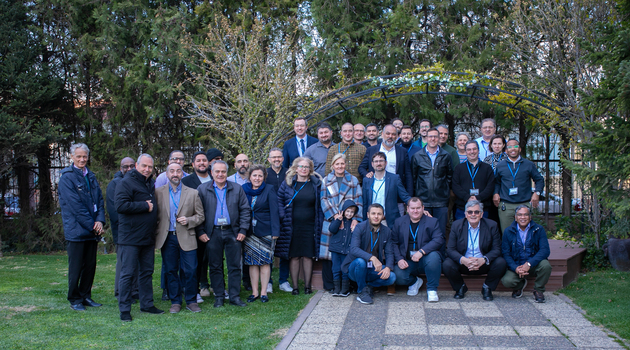
When Orthodox become Adventists
In his presentation on the global presence of Eastern Orthodoxy, Laurențiu Nistor, a lecturer at Adventus University Cernica, Romania, shared the practical challenges an Orthodox Christian experiences when becoming an Adventist. As one new member said: “I love my newfound faith, digging deeper into the Word through preaching and Bible study. But I continue to go to the cathedral on Sunday to feel ‘God’s presence’ and to be totally showered by the presence of God. I find that in Adventist worship, there is too little music and prayer for the amount that my soul requires.”
In response, Igor Mitrović from Serbia asked: “Is Adventism attractive enough in the aesthetic sense? I raise this because I am concerned that there is no beauty to inspire an Orthodox person in the arena of Adventist worship.”
Cristian Dumitrescu, also from Adventus University Cernica, connected with this challenge by commenting: “Truth is not only seen through the intellectual channel, but through the emotional channel.”
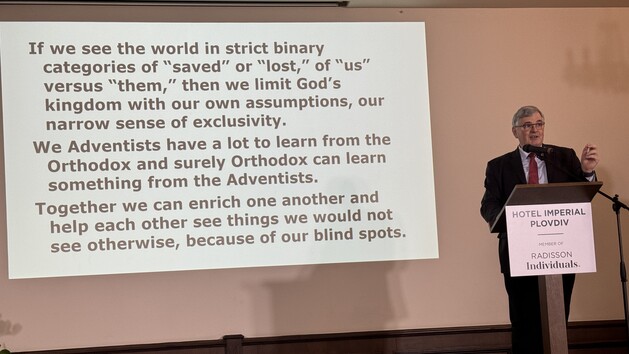
Adventism Meets Eastern Orthodoxy
Just in time for the conference, the pre-launch of a 2025 book, Adventism Meets Eastern Orthodoxy: Historical, Theological, and Missiological Bridges, invited the Adventist community to thoughtfully navigate the cultural and theological challenges of engaging with the Eastern Orthodox faith. The twenty contributors, from diverse backgrounds — including theologians, educators, pastors, and church planters — are specialists who connect with Orthodox religion and culture.
Co-editors Anthony WagenerSmith and Tihomir Lasić (present via digital conference) recognised the book’s launch as “both a reflection on the past and a call to engage with the present and the future… to reimagine the Church’s mission through the transformative lens of God’s work within, through and around us.” This underscores the need for the Church’s mission “in Eastern Orthodox regions and among diaspora groups to have a sensitive and collaborative engagement.” (4)
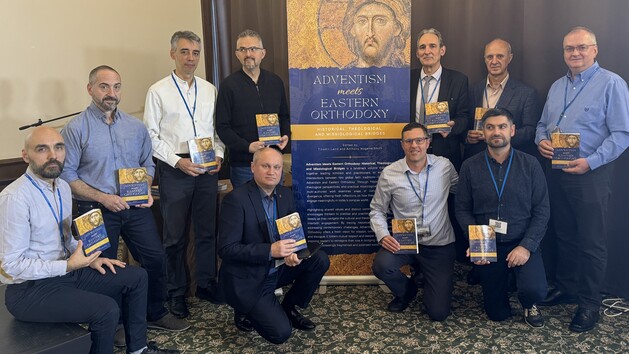
Launch of Research Project
While the book’s pre-launch signalled the significant thought given to Adventism meeting Eastern Orthodoxy, another launch at this conference signalled that this research and conversation are ongoing. In particular, in conjunction with the General Conference Office of Adventist Mission and Andrews University Researchers Petr Cincala and Renee Drumm, participants were invited to share their experiences of growing up in Orthodox environments as Adventists or as former Orthodox Christians.
Strategic Recommendations
For any conference to have value, there must always be a ‘what next’ element. To explore how Adventists can better understand Orthodox cultures and religious practices while simultaneously living out their unique values and calling to make disciples in preparation for Christ’s soon return, three core recommendations were made:
- Develop Greater Awareness in the Church of how the Adventist mission can connect with Orthodox religion and culture.
- Envision Pilot Projects in the field.
- Create a Global Advisory to guide the first two recommendations — one focused on raising awareness and the other on implementing practical projects
Anthony WagenerSmith, Mission Director for TED, reflecting on these strategic recommendations, said: “I do believe these will generate the right kinds of questions with our church entities and create more momentum after the conference.”
Perhaps the essence of this conference is best captured in the words of Evgene Zaitsev, PhD, Research Institute Director for the Euro-Asia Division:
“The most important thing that one should pay attention to when communicating with a representative of any of the Orthodox groups is the example of Christian piety that should be shown by every Seventh-day Adventist. It is often the authentic Christian life that provides the most powerful preaching and the most convincing argument for biblical truth… Christ must be reflected in you, in your character, in your words and actions. Only then… will your dialogue with the Orthodox believer be successful and fruitful.” (5)
- Laurențiu Nistor in his conference presentation.
- Pew Research Center. (2017). Orthodox Christianity in the 21st Century. Figures updated with 2023 data from multiple sources.
- A. I. Siderov quoted in a presentation by Evgene Zaitsev, PhD, Research Institute director for the Euro-Asia Division.
- Newbold Academic Press. (2025). Adventism meets Eastern Orthodoxy: Historic, theological, and missiological bridges. Available on general release early in 2025.
- ibid, page 196, Evgene Zaitsev.
[Photos: Sanja Vranic, David Neal and Shutterstock].
